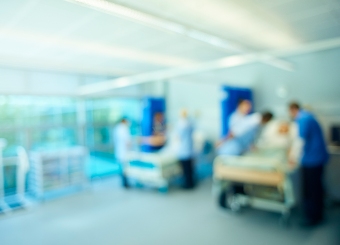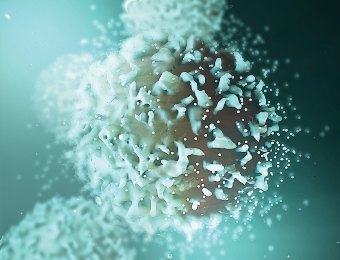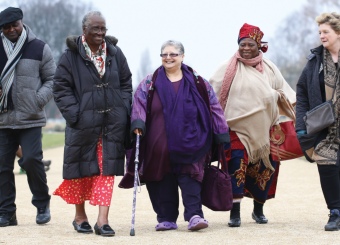Every five minutes, someone in the UK will have a stroke, with one in ten of these a brain haemorrhage. Manchester researchers are preparing to launch a care package across north-west England that could save more lives from these severe strokes.
Fiona Moss will never forget the call that changed her life forever. It was 2011, and she was in her second year of university, getting ready to celebrate a friend’s birthday. Then the phone rang. Her sister Natalie had been rushed to hospital. She’d had a brain haemorrhage.
Natalie was just 26 years old, a Manchester graduate whom her sister described as kind, generous and a friend to everyone.
“Natalie’s brain haemorrhage struck out of nowhere”, Fiona says. “She was at an event in London when she developed a severe headache and began vomiting. She was rushed to hospital for treatment, but ended up in a coma. We played a painful waiting game. But after five days in intensive care, she passed away.”
Brain haemorrhages – or haemorrhagic strokes – are caused by bleeding in and around the brain. They are generally more severe than strokes caused by a blockage. Around one third of patients don’t survive longer than a month, and many who do survive are left with lifelong disabilities.
Our hope is that Manchester’s research will help more people survive brain haemorrhages.
Survival rates have remained stubbornly constant for 30 years, but clinical researchers at Manchester are set to introduce a care package for patients across the north-west that could reduce deaths by a third.
Transforming care
Dr Adrian Parry-Jones is a consultant neurologist based at the University and at Salford Royal NHS Foundation Trust. As a clinical scientist, he works with academic researchers, clinical colleagues and patients to improve care.
Dr Parry-Jones and his team have recognised a number of issues in the treatment of haemorrhagic stroke. “When someone has had a brain haemorrhage, it’s important to act quickly. But it’s often the case that the minute a doctor sees blood on the brain scan they immediately refer them to neurosurgery,” he explains. “However, surgery might not be the best option, and this referral process delays other treatments that could be more effective.”
In 2015, Dr Parry-Jones and his team introduced a care package called the ABC Bundle for brain haemorrhage patients, including an innovative app to support clinicians. The A stands for anticoagulant reversal, the B for blood pressure lowering and the C for care pathway. These three stages respectively reduce the risk of further bleeding, guide clinicians on treatments to control blood pressure, and provide criteria for referring patients to neurosurgery.
The ABC Bundle has proven to be a huge success, reducing deaths at Salford Royal by a third, which equates to saving two lives every month. In 2017, the project was scaled up into two further stroke units in Stockport and Bury. And now Dr Parry-Jones and his team are preparing to roll out the bundle across the north-west.
An incredible legacy
For Fiona and her family, they are turning a personal tragedy into an incredible legacy, setting up a trust that supports crucial research into stroke at Manchester. Recently, they have been joined by hundreds of alumni who have helped fund a new PhD post in stroke research at the University.
“My family have learned the hard way that stroke can affect anyone, at any stage of their life,” says Fiona. “In the nine years since Natalie died, we’ve already seen encouraging progress.
“Our hope is that Manchester’s research will help more people survive brain haemorrhages. Or, better still, prevent them happening altogether.”
Read more about Manchester’s stroke research appeal.
Find out more about the Natalie Kate Moss Trust.





